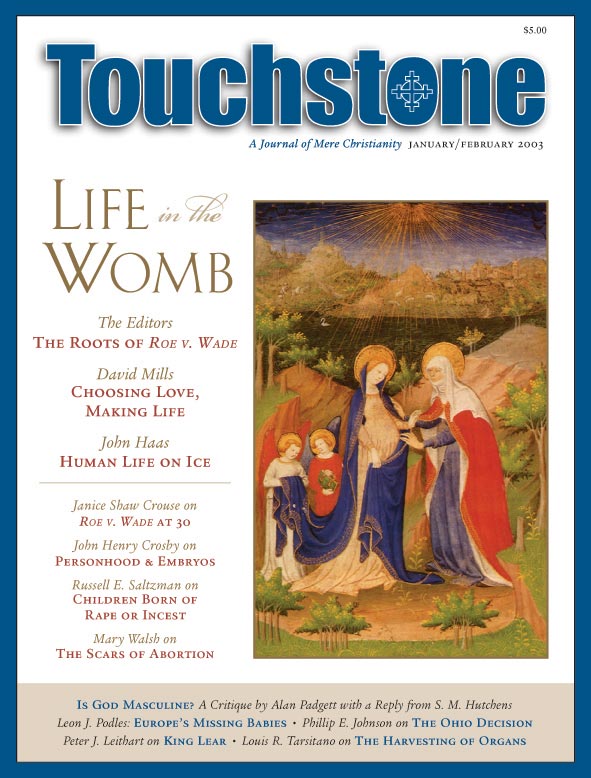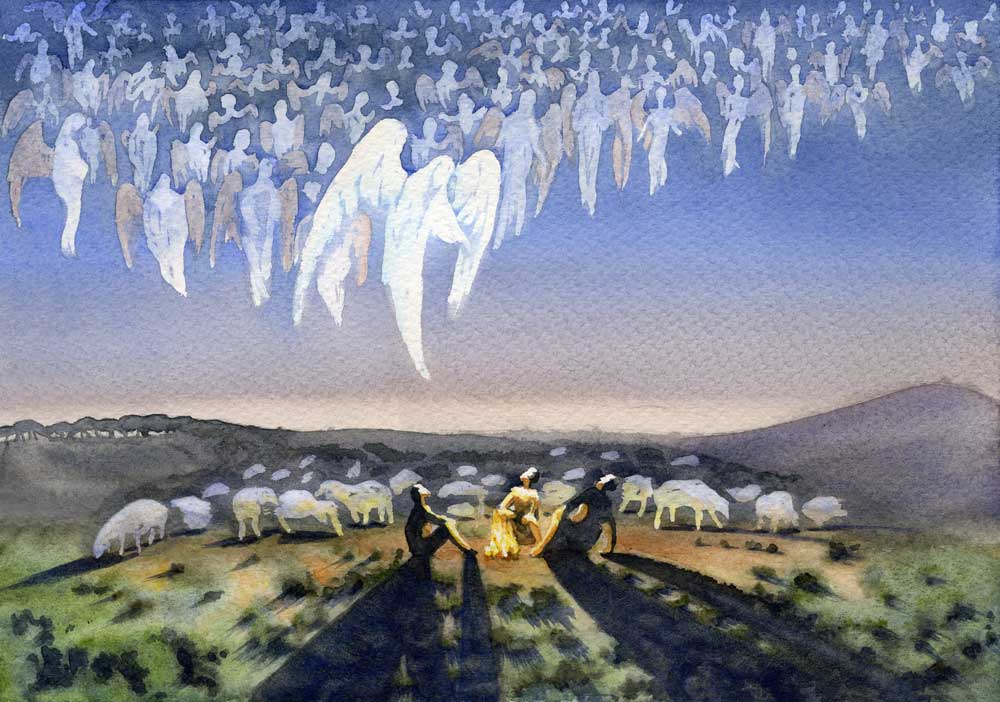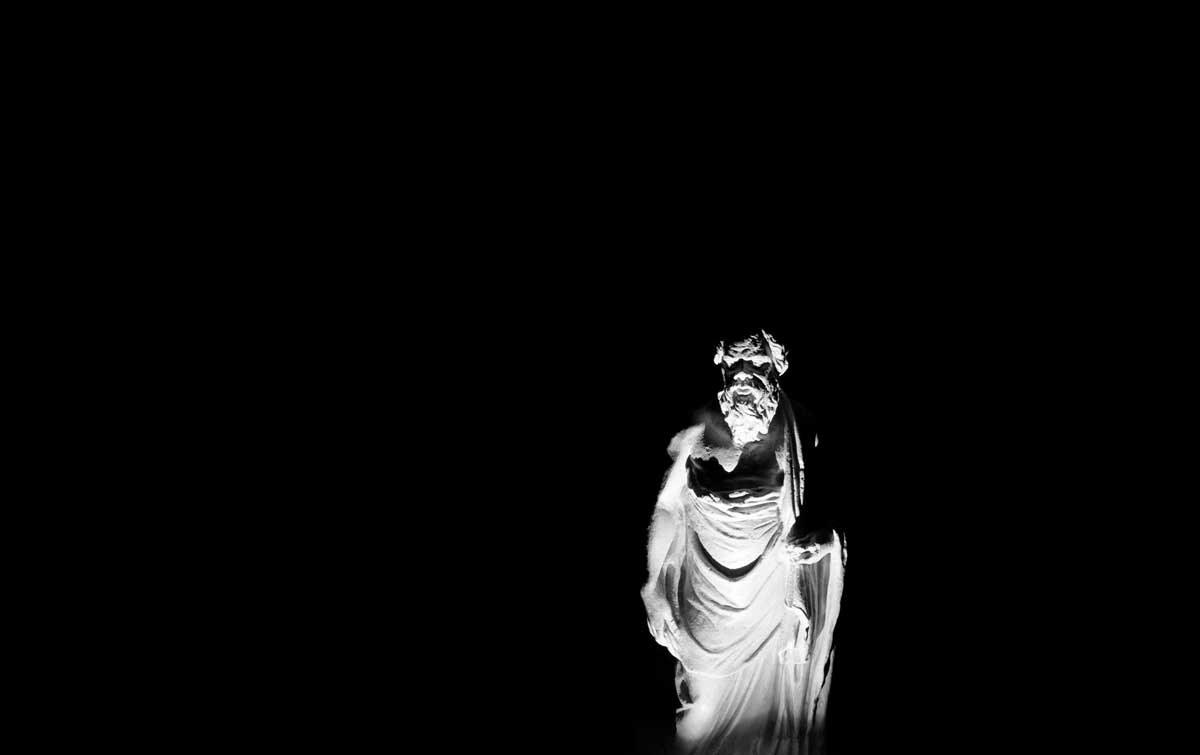The Roots of Roe v. Wade
During this month, as in every January for the past thirty years, those Americans left with even the meanest vestige of moral instinct will reflect with disgust on the Supreme Court’s ruling in Roe v. Wade. Some of these citizens will also comment, as they should, that that 1973 judicial determination was an affront to humanity, a legal travesty, a distortion of the Constitution surpassing in sheer injustice even the Dred Scott decision of 1857. Some, recalling that the Dred Scott ruling itself set the stage for the Civil War, may wonder—if it was true in yesteryear that “every drop of blood drawn with the lash shall be paid by another drawn with the sword”—whether some yet worse retribution will be exacted of our country by a righteous God righteously stirred at the murder of unborn children in their millions. And wonder they should. Still others, more stalwart of heart, will fortify their resolve to toil for the overthrow of Roe v. Wade, whether by constitutional amendment or by wise judicial appointments to restore the Court’s good sense and moral integrity. All such things will sane Americans think, of course, for these are still the right responses to the most extreme miscarriage of justice ever perpetrated by any court in this nation.
It is not to slight the propriety of any of those responses, therefore, that we declare Roe v. Wade to be more a symptom of our crisis than its cause. It appears to us, as it does to William B. Wichterman in a recent essay (“The Culture: ‘Upstream’ from Politics,” in Don Eberly, ed., Building a Healthy Culture), that “the Court was simply joining the cultural revolution already well underway.” Indeed, it is very arguable that Roe v. Wade did rather little to increase the number of legal abortions in this country. Wichtermann himself contends that “the abortion rate probably would have climbed to at least one million per year even without Roe, and more likely higher still.”
By January of 1973, what now goes by the abhorrent euphemism “reproductive freedom” was already a movement robustly on the march, as Gerald N. Rosenberg demonstrated in the study he published eighteen years later, The Hollow Hope: Can Courts Bring About Social Change? When various state legislatures began removing statutory restrictions against abortion toward the end of the sixties, the frequency of the procedure jumped dramatically. Between 1968 and 1973, eighteen states had loosened their anti-abortion laws. In the large states of New York and California there was almost unlimited legal access to abortion chambers, and over a half-million legal abortions were performed in this country during the twelve months preceding the Supreme Court’s ruling. Indeed, before the first line of Roe was composed, 70 percent of all American citizens lived within two hours’ drive of a state where abortions were legal. The pro-choice lobby was definitely in the ascendant, and, according to a Gallup poll published just seven months before Roe, 64 percent of Americans believed that abortion was a matter to be decided entirely by a woman and her physician. Alas, some of us pro-lifers can still remember that it was ourselves, back in those days, not the pro-choice folks, who were counting on vindication by the Supreme Court.
We are not convinced, therefore, that a judicial reversal of Roe v. Wade, though it remains a favor much to be craved, would necessarily diminish the number of legal abortions performed in this country. More likely, such a development would simply shift the pertinent political agitation back to the state legislatures, where, we suspect, the pro-life cause would lose more battles than its proponents contemplate. Law and politics, we contend, lie downstream from culture, and the current cultural state of our nation, particularly with respect to abortion, seems to us not one whit better than it was during the years leading up to 1973. Between 1967 and 1972, a large number of major national groups and alliances passed various resolutions and endorsements to repeal all legal restrictions on abortion. Among those groups were 21 medical organizations and 28 religious bodies, including the YMCA. The political activities of those organizations were mainly directed, not at the Supreme Court, but at state legislatures, where they won more battles than they lost. There is every reason to believe that this would be the case once again if Roe were overturned.
Politics and law, we said, lie downstream from culture. Therefore, the real and deeper dilemma, the dilemma arguably as disturbing as abortion itself, is cultural. Our current culture, to say it plainly, has largely stopped thinking of children as gifts from God and firstfruits of the future. The dominant mentality today is manifestly what Irving Babbitt (if memory serves) called “presentism.” It is concentrated almost overwhelmingly on the present because men right now are living increasingly without hope, and they are living without hope because they are not providing for the future. Their cultural despondency is, in this sense, justified. Our culture, compulsively and even morbidly preoccupied with the here-and-now, is deliberately moribund, depriving itself of anything to look forward to. This truth is lucidly indicated by the disastrously low birthrates in this country (and in the West generally).
We submit, therefore, that children are now being aborted in the flesh, because they have already been, in large measure, aborted from the mind. We deprive unborn infants of a future because they are inconveniences intruding on our chosen pursuits in the present. Why should we let those infants live, after all, if they are but the by-products of sexual activity, rather than the properly intended purpose of that activity? In short, our current cultural crisis has to do with sex regarded in terms of present “fulfillment” rather than in terms of future family. The progressive severance of sex from the proper structures and duties of family is, moreover, a concern that most religious bodies in this nation have hardly begun to address at a deep level.
The most obvious manifestation of this severance, of course, is homosexuality. We are content here, however, merely to mention that the matter is obvious; we are not disposed to argue much with those who disagree. Indeed, some of us hardly know where to begin a serious moral conversation with individuals incapable of distinguishing between sexual organs and . . . well, other parts of the body.
Another manifestation of the current severance of sexuality from family, we believe, is recourse to artificial contraception. The pill, the patch, and the condom have become—once again to cite Wichtermann—our culture’s “first defense against childbirth,” abortion serving only as a socially distasteful back-up. Pregnancy is now widely regarded as something that married couples are expected to prevent until they, not God, decide that they are ready to have children. Husbands and wives are expected to control, that is, not their sexual behavior, but their incidence of pregnancy. Man, not God, is thereby authorized to decide when and how the creation of human beings takes place. It is no small indication of our cultural decline that we now speak, not of procreation, but of reproduction.
This utterly rebellious attitude, the “contraceptive mentality,” is surely a serious moral failing characteristic of the present culture. The relationship of this “contraceptive culture” to abortion itself lies much deeper than a first comparison of the two things might suggest, nor is there any logic, we think, in opposing the terrible sin of abortion while in other respects promoting the selfishness and materialism that give rise to it.
An illustration of the subterranean tunnel joining the ethics of abortion and contraception was provided in the events leading up to Roe v. Wade. It appears obvious to us that the public support for abortion that led to the Supreme Court’s decision in 1973 was not unrelated to the public rage and outcry that greeted the papal encyclical Humanae Vitae in 1968. When Pope Paul VI asserted that the primary and formal purpose of human sexual intercourse is the conception of children and, thus, the assembling of a family, he said no more about artificial contraception than the Bible and traditional Christian doctrine would oblige any Christian pastor to say—namely, that a serious moral flaw adheres to any sexual act that is deliberately closed off to God’s using that act for the creation of a human being. It is our persuasion that if Americans were to take seriously the traditional Christian perspective contained in Humanae Vitae, Roe v. Wade would disappear very quickly.
It is our hope, then, that this thirtieth anniversary of the Supreme Court’s ruling will be the occasion not only for lamenting the ongoing political climate that permits that odious dictum yet to stand, but also for pondering more deeply the grace and mystery of human sexuality itself, especially the manifest purpose for which God gave it to us. We all know there is a tribunal far higher than our Supreme Court. It is important to recall, in addition, that we too will gather before it, to render an account of our stewardship. The present growing separation of sexuality from the formation of family, we suggest, raises some serious questions about that stewardship.
Patrick Henry Reardon is pastor emeritus of All Saints Antiochian Orthodox Church in Chicago, Illinois, and the author of numerous books, including, most recently, Out of Step with God: Orthodox Christian Reflections on the Book of Numbers (Ancient Faith Publishing, 2019).
subscription options
Order
Print/Online Subscription

Get six issues (one year) of Touchstone PLUS full online access including pdf downloads for only $39.95. That's only $3.34 per month!
Order
Online Only
Subscription

Get a one-year full-access subscription to the Touchstone online archives for only $19.95. That's only $1.66 per month!
bulk subscriptions
Order Touchstone subscriptions in bulk and save $10 per sub! Each subscription includes 6 issues of Touchstone plus full online access to touchstonemag.com—including archives, videos, and pdf downloads of recent issues for only $29.95 each! Great for churches or study groups.
Transactions will be processed on a secure server.
more from the online archives
calling all readers
Please Donate
"There are magazines worth reading but few worth saving . . . Touchstone is just such a magazine."
—Alice von Hildebrand
"Here we do not concede one square millimeter of territory to falsehood, folly, contemporary sentimentality, or fashion. We speak the truth, and let God be our judge. . . . Touchstone is the one committedly Christian conservative journal."
—Anthony Esolen, Touchstone senior editor










